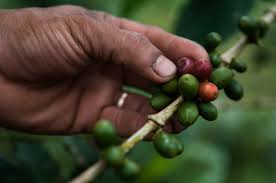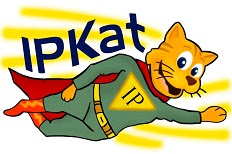A dining table full of goodies: the relevance of Geographical Indications (GI)
You may think that I am gluttonous or better say piggish but I really love food. It is not the fact that I eat a lot (which I do) but I like and enjoy myself every time I eat. Even sitting now having my simple lunch in front of the computer, I am thinking 'this is the best creamy carrot soup ever made' (by my mother).
 The texture, the different flavours and fragrances that food provide us with, are to be appreciated. Perhaps I learned from a young age to value food... the preparation of the soil, the plantation, the harvest. I remember the no so pleasant mosquitoes when we were harvesting coffee but I also remember so vividly the best fresh coffee one could have.
The texture, the different flavours and fragrances that food provide us with, are to be appreciated. Perhaps I learned from a young age to value food... the preparation of the soil, the plantation, the harvest. I remember the no so pleasant mosquitoes when we were harvesting coffee but I also remember so vividly the best fresh coffee one could have.
Many countries claim to have dishes full of tradition and every time I visit a new country I will try national dishes (of course there are some that I have not enjoyed as much).
In this blog we keep reporting on GIs, the procedure, who got a new one, entitlements, infringements, but in any case we always mentione the importance and relevance that it has for the country, for the particular region and for its people. We sometimes acknowledge that a GI is not for everyone and that there is not always gold at the end of the rainbow. Yet, without a doubt if a product got that little certification i.e. GI label, it will turn heads. And it does so because the product that contains that GI label will tell you that it has a special quality and that such a quality is due to the geographical environment, including natural factors such as: climate, soil, minerals, water and the human factor. A GI is a cultural representation, a heritage.
 I read therefore with enthusiasm that in Mexico, the ‘Grupo Sanborns’ is offering to the diners of their chain of restaurant, a menu which highlights the traditional Mexican dishes including particularly those that have a Denomination of Origin (DO). The news brought by the Instituto Mexicano de Propeiedad Industrial (IMPI) notes some of the agricultural products that customers will try such as: ‘Tequila, Mezcal, Arroz del Estado de Morelos, Vainilla de Papantla, Mango Ataúlfo del Soconusco Chiapas, Chile Habanero de la Península de Yucatán y Café Veracruz.’
I read therefore with enthusiasm that in Mexico, the ‘Grupo Sanborns’ is offering to the diners of their chain of restaurant, a menu which highlights the traditional Mexican dishes including particularly those that have a Denomination of Origin (DO). The news brought by the Instituto Mexicano de Propeiedad Industrial (IMPI) notes some of the agricultural products that customers will try such as: ‘Tequila, Mezcal, Arroz del Estado de Morelos, Vainilla de Papantla, Mango Ataúlfo del Soconusco Chiapas, Chile Habanero de la Península de Yucatán y Café Veracruz.’
In the same line, we heard from IMPI that they have granted the 15th DO to 'Cacao Grijalva' comprising 3 sub-regions and 11 municipalities. The quality is partly given due to domesticated forest which mirrors the rain-forest and prevents soil erosion. The climate is also accountable for the quality of the cocoa which is claimed to be in production since pre-Hispanic times.
More information here and here.
Many countries claim to have dishes full of tradition and every time I visit a new country I will try national dishes (of course there are some that I have not enjoyed as much).
In this blog we keep reporting on GIs, the procedure, who got a new one, entitlements, infringements, but in any case we always mentione the importance and relevance that it has for the country, for the particular region and for its people. We sometimes acknowledge that a GI is not for everyone and that there is not always gold at the end of the rainbow. Yet, without a doubt if a product got that little certification i.e. GI label, it will turn heads. And it does so because the product that contains that GI label will tell you that it has a special quality and that such a quality is due to the geographical environment, including natural factors such as: climate, soil, minerals, water and the human factor. A GI is a cultural representation, a heritage.
In the same line, we heard from IMPI that they have granted the 15th DO to 'Cacao Grijalva' comprising 3 sub-regions and 11 municipalities. The quality is partly given due to domesticated forest which mirrors the rain-forest and prevents soil erosion. The climate is also accountable for the quality of the cocoa which is claimed to be in production since pre-Hispanic times.
More information here and here.













